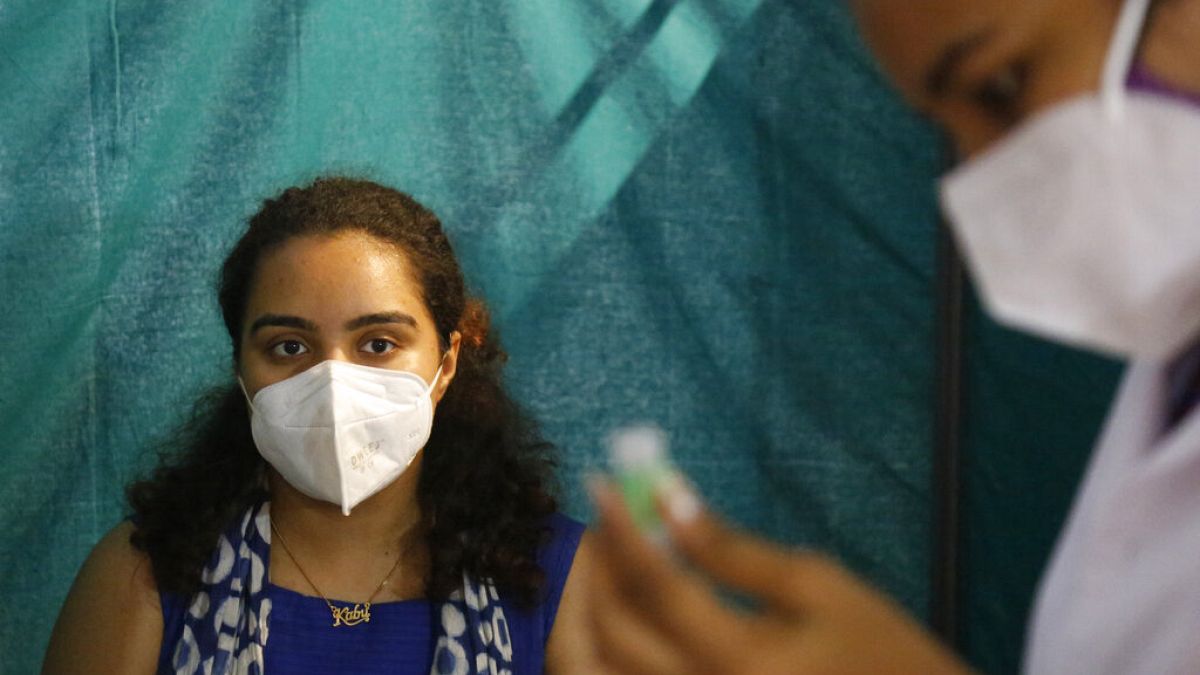"While it's true that an intellectual property waiver alone won’t fix shortages, it will be a crucial first step in ramping up the dispensation of vaccines."
I have a new morning alarm these days: the alert on my phone to book a COVID vaccine. It’s the same routine every day. Within seconds of trying to book an appointment, I am told there are “0 slots”. Securing a vaccine in India is an impossible game of fastest finger first.
But this game is only for people like me in urban India with access to technology. Even with these benefits, there is no guarantee that I will get a jab because of the extreme shortages of vaccines.
The rights to manufacture vaccines are currently held by a small group of pharmaceutical companies making extraordinary profits by controlling the global supply. While over 1.74 billion vaccine doses have been administered worldwide, the difference in vaccination programmes between countries is stark, with dozens –- including Madagascar, Nicaragua, Cuba, Chad, Burkina Faso, Burundi, Eritrea, and Tanzania -- yet to report a single jab being delivered.
India’s second wave is still ravaging the country, pushing hospitals and people to a breaking point. It will take a generation to recover from what we’ve seen in our communities, our hospitals and our families. Shortage of oxygen, hospital beds, overburdened crematoriums and crumbling public health infrastructure have left my country gasping for breath.
For the past few months, I’ve been on late-night calls trying to help the sick get hold of oxygen, a hospital bed or COVID medication. There are thousands of volunteers, mostly young, working around the clock to help their communities and families. For them, and for myself, the constant sense of devastation when the people we are trying to help don’t make it is taking its toll.
This nightmare can quickly spread. The so-called Indian variant is between 30% to 100% more transmissible than the UK variant and is now present in 44 countries worldwide. With new variants emerging, we cannot end the pandemic without vaccinating the whole world.
In the United States, 50 per cent of the population has received at least one vaccine dose. India has administered the first dose to only 11 per cent of its population. Meanwhile, Africa has the slowest vaccination rate of any continents, with some African countries yet to start mass vaccination campaigns. According to the World Health Organization (WHO), 87 per cent of vaccine supply has gone to higher-income countries.
This presents a two-tier pandemic: with countries with successful vaccine drives, such as the UK and France, unwinding lockdown measures, while others, like Vietnam, Cambodia, and Brazil, are witnessing a rapid increase in COVID cases.
To address this, India, South Africa and 100 other countries have put forward a proposal to the World Trade Organisation (WTO), that will be discussed on Tuesday, asking to temporarily waive patents for COVID-19 vaccines.
The United States recently came out in support of the waiver. It was a seismic breakthrough, adding substantial pressure to the remaining nations blocking the proposal. Seemingly moved by the crisis in India, President Biden broke away from the country’s usual dogmatic defence of intellectual property rights, declaring that no one in the world is safe from COVID-19 until everyone is safe.
But, still, wealthy western nations, such as the UK, Canada, Australia, Switzerland, and the EU are blocking the waiver. Many prefer to hoard their vaccines and protect their countries pharmaceutical industry rather than do their part to support the world to recover from this deadly pandemic together.
Some countries, mainly in Europe, are recommending the route of donating vaccines, via schemes such as COVAX -- a multilateral scheme aimed at distributing doses equitably among low and high-income countries alike. But, even with recent improvements, COVAX only intends to deliver vaccines for 30% of participating countries’ populations. And, with production limited to the supply chains of a handful of companies, the scheme is reportedly lagging far behind target.
We don’t want charity. We want to produce scale-up vaccine production, with diversified and in-country facilities around the world. And, while it's true that an intellectual property waiver alone won’t fix shortages, it will be a crucial first step in ramping up the dispensation of vaccines.
The choice that global leaders face is clear. They can stand by the intellectual property rules that are suppressing global vaccine supplies. Or they can break the monopoly on vaccines, radically scale up global production, and take the crucial first step towards ending this pandemic for all of us.
Divya Narayanan is a director at Jhatkaa.org, an Indian campaigning organisation with a focus on human rights.
